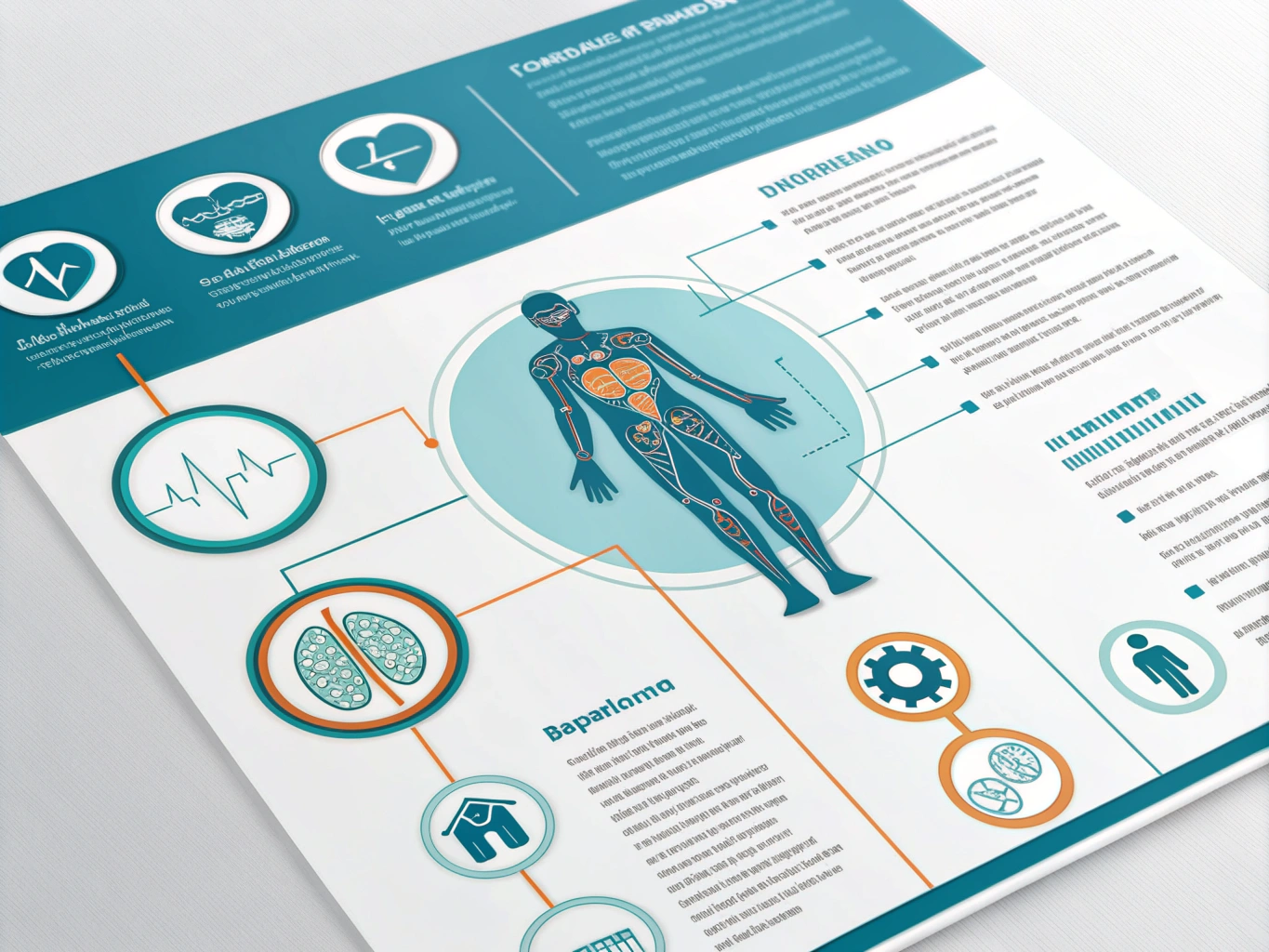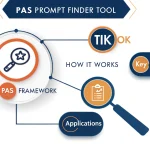PAS Guide Generator
Is this tool helpful?
How to Use the PAS Guide Generator Effectively
The PAS Guide Generator is a powerful tool designed to create comprehensive guides about Post-Acute Sequelae (PAS). To use this tool effectively, follow these simple steps:
- Locate the text area labeled “Any specific aspects of PAS you want to be emphasized or included in the guide (Optional):”
- Enter any specific topics or areas you’d like the guide to focus on. This step is optional but can help tailor the guide to your needs.
- Click the “Generate PAS Guide” button to create your personalized guide.
- Once generated, the guide will appear in the result section below the form.
- Review the generated content and use the “Copy to Clipboard” button to save the information for future reference.
For example, you might input “Long-term neurological effects of PAS” or “Rehabilitation strategies for PAS patients” to get more focused information on these specific aspects.
Understanding the PAS Guide Generator: Your Gateway to Comprehensive PAS Knowledge
The PAS Guide Generator is an innovative online tool designed to provide users with in-depth, tailored information about Post-Acute Sequelae (PAS), a condition that has gained significant attention in recent years, particularly in the context of post-COVID-19 recovery. This tool leverages advanced algorithms and up-to-date medical knowledge to create comprehensive guides that cover various aspects of PAS, from its definition and symptoms to treatment strategies and ongoing research.
Purpose and Benefits of the PAS Guide Generator
The primary purpose of this tool is to bridge the knowledge gap between medical professionals and the general public regarding PAS. It aims to:
- Provide accurate, easy-to-understand information about PAS
- Offer personalized guides based on user-specific interests or concerns
- Empower patients, caregivers, and healthcare providers with the latest PAS-related knowledge
- Facilitate better understanding and management of PAS symptoms
- Keep users informed about current research and treatment developments
Benefits of Using the PAS Guide Generator
1. Customized Information
One of the most significant advantages of the PAS Guide Generator is its ability to provide tailored information. By allowing users to input specific aspects they want to be emphasized, the tool ensures that the generated guide addresses individual concerns and interests. This personalization feature sets it apart from generic online resources, making it an invaluable tool for those seeking targeted information about PAS.
2. Time-Saving and Efficient
Researching PAS can be a time-consuming process, often involving sifting through numerous medical journals and articles. The PAS Guide Generator streamlines this process by compiling relevant, up-to-date information into a single, comprehensive guide. This efficiency is particularly beneficial for healthcare providers who need quick access to PAS information for patient education or for individuals trying to understand their own condition or that of a loved one.
3. Accessibility and User-Friendliness
The tool’s web-based interface makes it accessible from any device with internet connectivity. Its simple, intuitive design ensures that users of all technical skill levels can easily generate and access PAS guides. This accessibility is crucial in democratizing medical information, allowing a broader audience to gain insights into PAS without navigating complex medical databases or terminology.
4. Comprehensive Coverage
Each generated guide provides a holistic view of PAS, covering various aspects such as definition, symptoms, causes, diagnosis, treatment, and ongoing research. This comprehensive approach ensures that users receive a well-rounded understanding of the condition, rather than fragmented information that might be gathered from multiple sources.
5. Up-to-Date Information
The field of PAS research is rapidly evolving, with new findings and treatment strategies emerging regularly. The PAS Guide Generator is designed to incorporate the latest research and medical consensus, ensuring that users have access to the most current information available. This feature is particularly valuable in a field where outdated information could lead to misunderstandings or ineffective management strategies.
Addressing User Needs and Solving Specific Problems
Bridging the Information Gap
One of the primary challenges faced by individuals affected by PAS, either directly or indirectly, is the lack of easily accessible, comprehensive information. The PAS Guide Generator addresses this need by providing a one-stop solution for PAS-related information. It consolidates data from various reliable sources, presenting it in a format that is easy to understand and apply.
Tailored Patient Education
For healthcare providers, explaining PAS to patients can be challenging due to its complex nature and the varying manifestations among individuals. The PAS Guide Generator solves this problem by allowing providers to create customized educational materials. For instance, a neurologist focusing on PAS-related cognitive issues can generate a guide that emphasizes neurological symptoms and management strategies, making patient education more relevant and effective.
Supporting Informed Decision-Making
Patients and their families often struggle with making informed decisions about PAS management due to the overwhelming amount of information available online, some of which may be unreliable. The PAS Guide Generator addresses this by providing curated, evidence-based information. This empowers users to make more informed decisions about their health or the health of their loved ones.
Facilitating Research Understanding
For individuals interested in the scientific aspects of PAS, understanding ongoing research can be daunting. The tool simplifies this by summarizing current research trends and recent developments in an accessible format. This feature is particularly useful for patients participating in clinical trials or those considering experimental treatments.
Practical Applications and Use Cases
Case Study 1: Patient Self-Education
Sarah, a 45-year-old woman recovering from COVID-19, experiences persistent fatigue and cognitive issues months after her initial infection. Concerned about these lingering symptoms, she uses the PAS Guide Generator, inputting “long-term cognitive effects” as her area of interest. The generated guide provides her with detailed information about PAS-related cognitive symptoms, potential management strategies, and ongoing research in this area. Armed with this knowledge, Sarah feels more prepared to discuss her symptoms with her healthcare provider and explore appropriate treatment options.
Case Study 2: Healthcare Provider Resource
Dr. Johnson, a primary care physician, has noticed an increase in patients reporting PAS-like symptoms. To better educate himself and his patients, he uses the PAS Guide Generator to create a series of guides focusing on different aspects of PAS. He generates one guide on “PAS diagnosis and treatment” and another on “PAS in different age groups.” These guides serve as valuable resources during patient consultations, allowing Dr. Johnson to provide more targeted advice and improve patient understanding of their condition.
Case Study 3: Research Participant Information
A university is conducting a clinical trial on a new treatment for PAS-related respiratory issues. The research team uses the PAS Guide Generator to create an informational packet for potential participants. They input “respiratory manifestations of PAS” and “current treatment approaches” to generate a comprehensive guide. This guide helps potential participants understand the context of the study and make informed decisions about their participation.
Case Study 4: Support Group Resource
A local PAS support group leader uses the PAS Guide Generator to create informational materials for group meetings. By generating guides on topics like “Managing PAS symptoms at home” and “PAS and mental health,” the leader provides valuable resources that facilitate group discussions and help members better understand and cope with their conditions.
Frequently Asked Questions (FAQ)
Q1: What is Post-Acute Sequelae (PAS)?
A1: Post-Acute Sequelae (PAS) refers to the long-term effects experienced by some individuals following an acute illness, most notably observed in the context of COVID-19. It involves a range of persistent symptoms that can affect multiple organ systems and significantly impact quality of life.
Q2: How long can PAS symptoms last?
A2: The duration of PAS symptoms can vary greatly among individuals. Some people may experience symptoms for a few weeks, while others may have persistent issues for months or even years. Ongoing research is still determining the full extent of long-term effects.
Q3: What are common symptoms of PAS?
A3: Common symptoms of PAS include fatigue, shortness of breath, cognitive issues (often referred to as “brain fog”), muscle pain, headaches, and sleep disturbances. However, PAS can affect multiple organ systems, and symptoms can vary widely among individuals.
Q4: Can the PAS Guide Generator provide personalized medical advice?
A4: No, the PAS Guide Generator is an educational tool and does not provide personalized medical advice. It offers general information about PAS based on current medical knowledge. For personalized medical advice, always consult with a healthcare professional.
Q5: How often is the information in the PAS Guide Generator updated?
A5: The information used by the PAS Guide Generator is regularly updated to reflect the latest research and medical consensus. However, given the rapidly evolving nature of PAS research, it’s always advisable to consult with healthcare professionals for the most current treatment recommendations.
Q6: Can I use the PAS Guide Generator if I’m not diagnosed with PAS?
A6: Absolutely! The PAS Guide Generator is a valuable educational tool for anyone interested in learning about PAS, including patients, caregivers, healthcare providers, and the general public. It can provide useful information regardless of your personal health status.
Q7: Are there any treatments specifically for PAS?
A7: Currently, treatment for PAS is primarily focused on managing individual symptoms and improving overall function. There is no single treatment that addresses all aspects of PAS. The PAS Guide Generator can provide information on current treatment approaches and ongoing research in this area.
Q8: Can PAS affect mental health?
A8: Yes, PAS can have significant impacts on mental health. Many individuals with PAS report experiencing anxiety, depression, and other psychological effects. The PAS Guide Generator can provide information on the mental health aspects of PAS and potential management strategies.
Q9: Is PAS only associated with COVID-19?
A9: While PAS has gained significant attention in the context of COVID-19 (often referred to as “Long COVID”), similar post-acute effects have been observed following other infections and illnesses. The PAS Guide Generator can provide information on various contexts in which PAS-like symptoms have been observed.
Q10: How can I support someone with PAS?
A10: Supporting someone with PAS involves understanding their condition, being patient, and helping them manage their symptoms. The PAS Guide Generator can provide valuable information on PAS management strategies and tips for caregivers, which can help you better support your loved one.
Remember, while the PAS Guide Generator is a powerful tool for understanding PAS, it should not replace professional medical advice. Always consult with healthcare professionals for personalized medical guidance and treatment decisions.
Important Disclaimer
The calculations, results, and content provided by our tools are not guaranteed to be accurate, complete, or reliable. Users are responsible for verifying and interpreting the results. Our content and tools may contain errors, biases, or inconsistencies. We reserve the right to save inputs and outputs from our tools for the purposes of error debugging, bias identification, and performance improvement. External companies providing AI models used in our tools may also save and process data in accordance with their own policies. By using our tools, you consent to this data collection and processing. We reserve the right to limit the usage of our tools based on current usability factors. By using our tools, you acknowledge that you have read, understood, and agreed to this disclaimer. You accept the inherent risks and limitations associated with the use of our tools and services.







